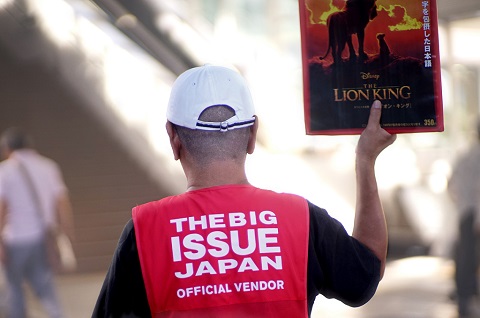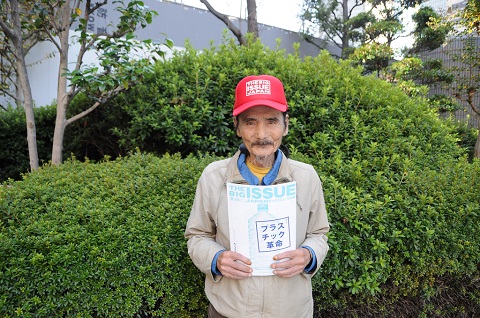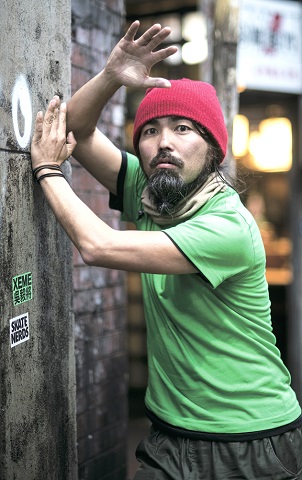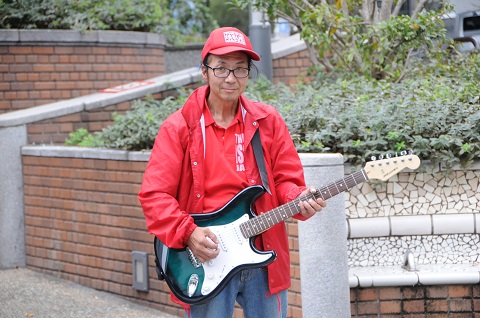By Mie Nakamura, The Big Issue Japan
Note: The ‘night-time’ bakery is currently closed following an official announcement on 8 January 2021 declaring a state of emergency in Tokyo due to the pandemic. The project aims to restart once restrictions have been lifted.
Near Kagurazaka Station in Tokyo, a small light illuminates a dark street. At 7.30pm, the ‘night-time bakery’ is open for business. The ‘night-time bakery’ – which operates at the front of a bookstore on Thursday, Friday and Saturday nights – finished its trial period and held its grand opening near the end of last year, on 16 October, coinciding with the World Food Programme’s ‘World Food Day’. On this day, there was a line-up of unique bread from eight different bakeries around Tokyo.
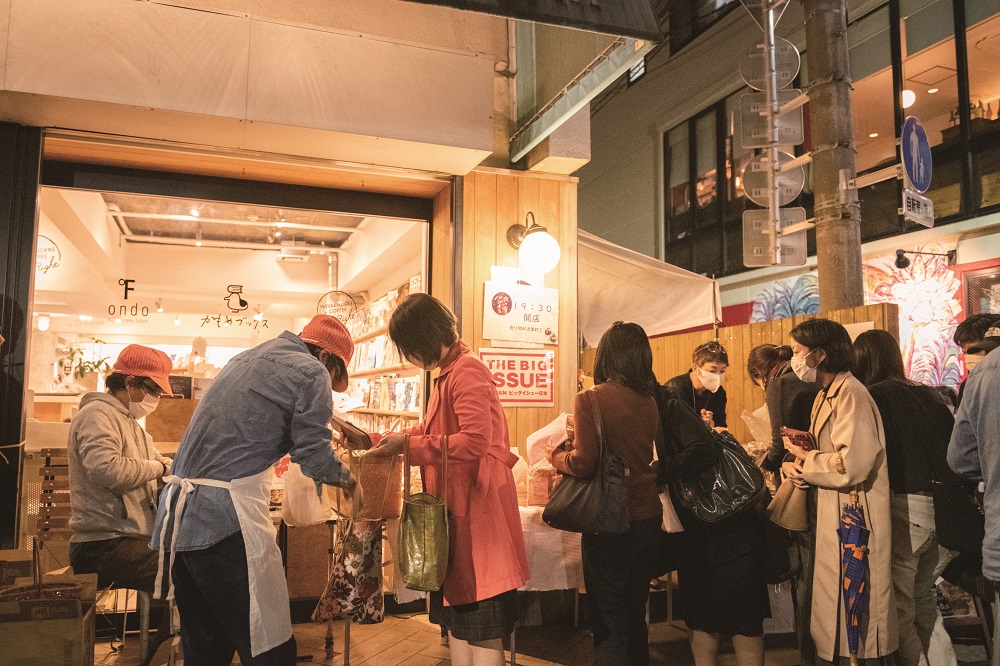
Sporting the same trendy uniform – a red hat and denim shirt – the staff selling bread here are usually Big Issue vendors. They look the part as they explain the various breads but laugh as they express that “it’s a bit different to selling magazines.”
The motive behind this project was a donation to The Big Issue from a benefactor who wanted the money to be used sustainably in order to help tackle issues. Nahomi Edamoto, a cooking expert (and joint representative of NPO Big Issue Foundation) is at the centre of the project and had been making preparations for it since 2019. However, with the increase of people living in poverty due to the coronavirus pandemic, the decline in number of magazines being sold on the street and the rise in demand for the creation of new jobs, Edamoto was propelled into launching the project.
In bakeries, there are times when freshly baked bread doesn’t sell and it becomes left over. The mechanism of the ‘night-time bakery’ is to buy this leftover bread from various bakeries and then sell them at night once the bakeries have closed.
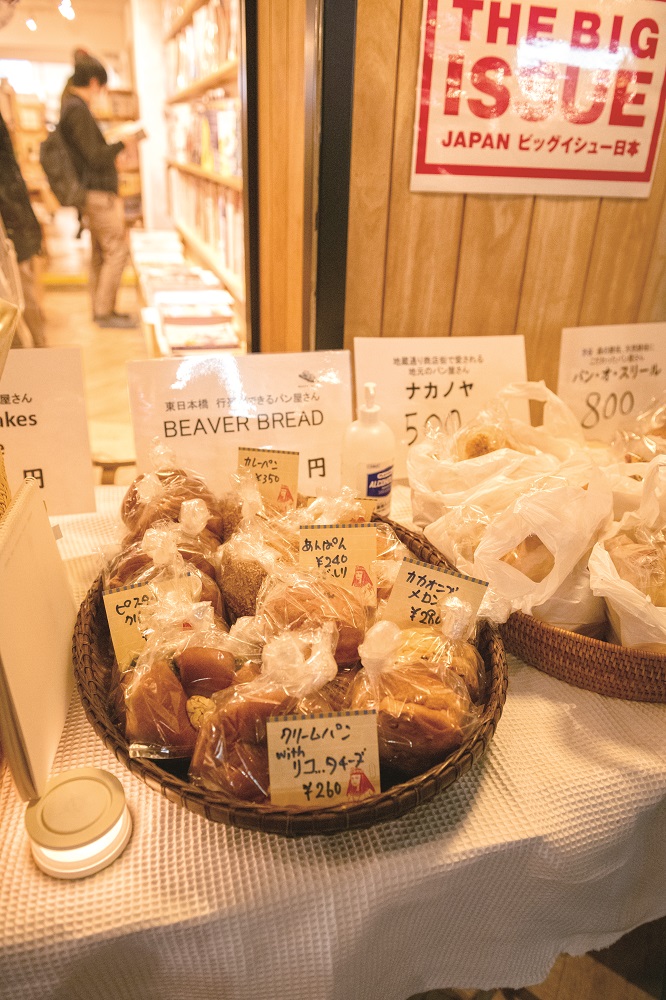
Edamoto says: “Making bread from scratch would be difficult, but buying the bread and selling it like this is something Big Issue vendors and I can do together. Not only is bread sold at the front of the store, but going and collecting the bread from bakeries near vendors’ sales locations is also a ‘small business’ (i.e. a source of income). Furthermore, this leads to the sale and consumption of bread that has been carefully prepared, helping to reduce food waste. The buyers get to enjoy various types of bread and it would be a good structure for both the sellers and bakeries.”
![Nahomi Edamoto [Credit: Kazuya Asano]](https://hub.insp.ngo/wp-content/uploads/2021/01/BIJ_Nighttime-bakery_3-1.jpg)
Originally, a mobile bakery was considered, however the popular bookstore and café ‘Kamome Books’ took an interest in the project and offered to let The Big Issue use the front of their store. When the bakery opened for a few days as a trial, there was a long line of customers that came to visit and the bread soon sold out. There was an array of customers ranging from those who knew the magazine to passers-by who thought the bread looked delicious and stopped to buy some.
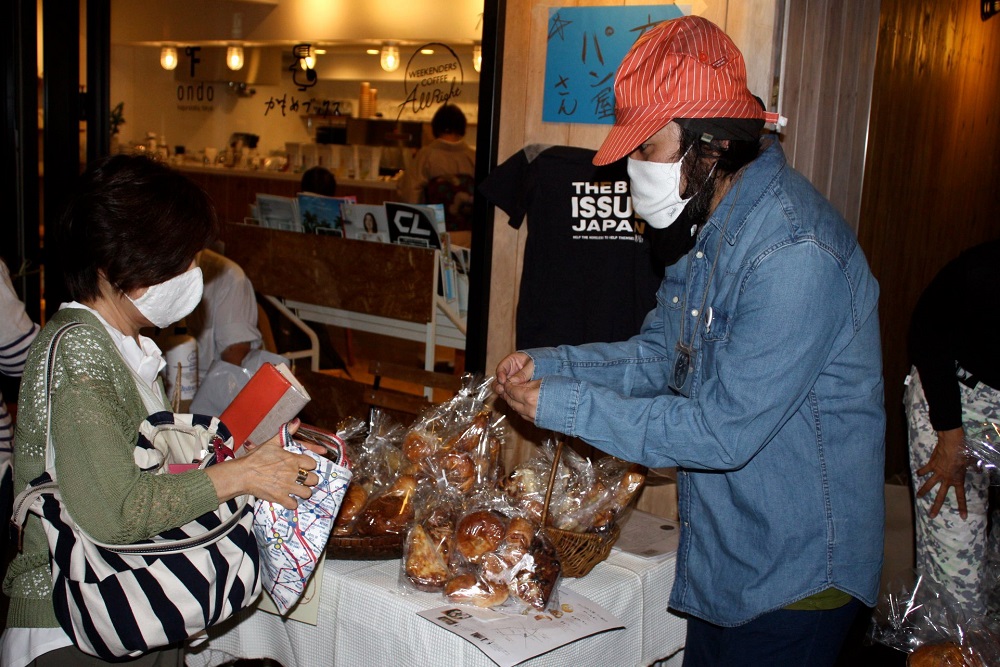
Since it’s impossible to know how much bread will be left over, the number of bakeries dealt with and the amount of bread bought each day varies. The next challenge is to increase the number of bakery collaborations. When beginning to work on this endeavour, Edamoto went round and visited bakeries for herself, but she only received the support of around 30 per cent of them. “At first, they were doubtful so it couldn’t be helped,” she laughs. “Now, the bakeries that are cooperating with us are nothing but wonderful. We run our ‘night-time bakery’ with a great sense of responsibility as we are entrusted with their bread.”
The number of bakeries getting in touch to collaborate after becoming aware of the project through the media is slowly increasing. “Where food is involved, a kind atmosphere is born. A bakery is a place where no matter how old you are, everyone is welcome,” says Edamoto.
Translated from Japanese by Rebekah Kobayashi Hyatt
A note to readers: Street papers provide trustworthy independent journalism and an opportunity for society’s most vulnerable and marginalised to earn a meaningful income. The impact of the pandemic has severely affected their work. Find out how to support your local street paper through subscriptions and donations here.









